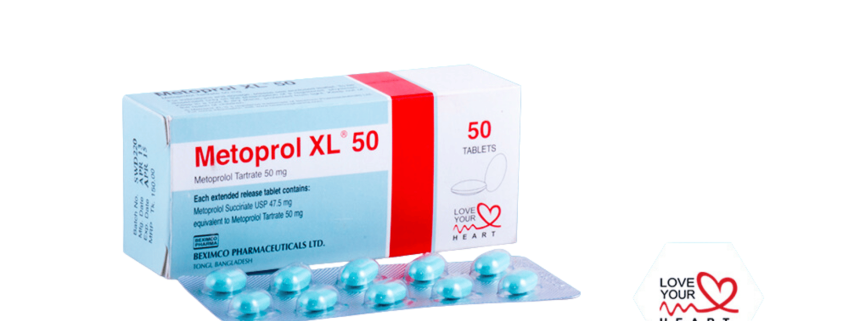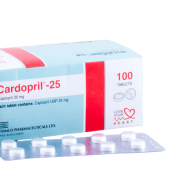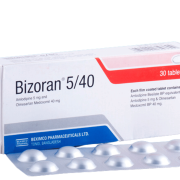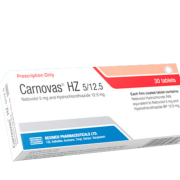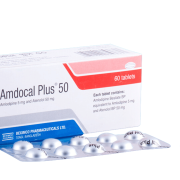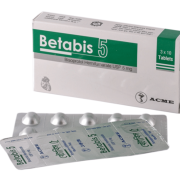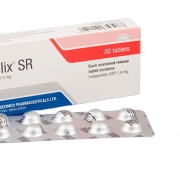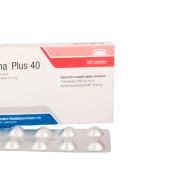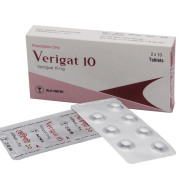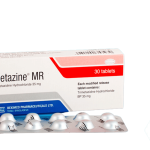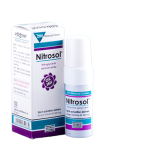Metoprol-XL
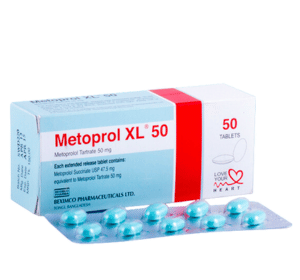
Generic Name: Metoprolol Succinate
Dosage Form: Tablet
TG Name: Cardiovascular
1. What Metoprol XL is and what it is used for?
Metoprolol Succinate (Metoprol XL®), is a beta1-selective (cardio selective) adrenoceptor blocking agent, for oral administration, available as extended release tablets. Metoprol XL® has been formulated to provide a controlled and predictable release of metoprolol for once-daily administration. The tablets comprise a multiple unit system containing metoprolol succinate in a multitude of controlled release pellets. Each pellet acts as a separate drug delivery unit and is designed to deliver metoprolol continuously over the dosage interval. Metoprol XL® is indicated for the treatment of hypertension, angina pectoris, heart failure and treatment of stable, symptomatic (NYHA Class II or III) heart failure of ischemic, hypertensive, or cardiomyopathic origin.
2. Before you Metoprol XL
Do not take this medicine and tell your doctor if:
Metoprolol is contraindicated in severe bradycardia, heart block greater than first degree, cardiogenic shock, decompensated cardiac failure, sick sinus syndrome (unless a permanent pacemaker is in place), and in patients who are hypersensitive to any component of this product. Do not take this medicine if the above applies to you. If you are not sure, talk to your doctor before taking Amdocal Plus.
Take special care with Metoprol XL
Bronchospastic Diseases: Because of its relative beta1-selectivity, however, Metoprolol may be used with caution in patients with bronchospastic disease who do not respond to, or cannot tolerate, other antihypertensive treatment.
Pheochromocytoma: If Metoprolol is used in the setting of pheochromocytoma, it should be given in combination with an alpha blocker, and only after the alpha blocker has been initiated.
Major Surgery: The necessity or desirability of withdrawing beta-blocking therapy prior to major surgery is controversial; the impaired ability of the heart to respond to reflex adrenergic stimuli may augment the risks of general anesthesia and surgical procedures.
Diabetes and Hypoglycemia: Beta-blockers may mask tachycardia occurring with hypoglycemia, but other manifestations such as dizziness and sweating may not be significantly affected.
Thyrotoxicosis: Beta-adrenergic blockade may mask certain clinical signs (eg, tachycardia) of hyperthyroidism.
Peripheral Vascular Disease: Beta-blockers can precipitate or aggravate symptoms of arterial insufficiency in patients with peripheral vascular disease.
Taking other medicines
Catecholamine-depleting drugs (eg, reserpine, monoamine oxidase (MAO) inhibitors) may have an additive effect when given with beta-blocking agents.Drugs that inhibit CYP2D6 such as quinidine, fluoxetine, paroxetine and propafenone are likely to increase metoprolol concentration. These increases in plasma concentration would decrease the cardioselectivity of metoprolol. Concomitant use of digitalis glycosides and beta-blockers can increase the risk of bradycardia. Beta-blockers may exacerbate the rebound hypertension which can follow the withdrawal of clonidine.
Pregnancy and breast-feeding
Pregnancy Category C. There are no adequate and well-controlled studies in pregnant women. this drug should be used during pregnancy only if clearly needed. Metoprolol is excreted in breast milk in very small quantities. Caution should be exercised when Metoprol XL® is administered to a nursing woman.
3. How to take Metoprol XL?
Metoprol XL® is an extended release tablet intended for once daily administration. For treatment of hypertension and angina, when switching from immediate release metoprolol, the same total daily dose of Metoprol XL® should be used. Dosages of Metoprol XL® should be individualized and titration may be needed in some patients. Hypertension: The usual initial dosage is 25 to 100 mg daily in a single dose, whether used alone or added to a diuretic. Dosages above 400 mg per day have not been studied.
Pediatric Hypertensive Patients ≥ 6 Years of age: A pediatric clinical hypertension study in patients 6 to 16 years of age did not meet its primary endpoint (dose response for reduction in SBP), however some other endpoints demonstrated effectiveness. If selected for treatment, the recommended starting dose of Metoprol XL® is 1.0 mg/kg once daily however, the maximum initial dose should not exceed 50 mg once daily. Doses above 2.0 mg/kg (or in excess of 200 mg) once daily have not been studied in pediatric patients.
Angina Pectoris: The usual initial dosage is 100 mg daily, given in a single dose. Dosages above 400 mg per day have not been studied.
If you take more Metoprol XL than you should
In humans, experience with intentional overdosage of Metoprol XL is limited. If massive overdosage occurs, active cardiac and respiratory monitoring should be instituted. Frequent blood pressure measurements are essential.
If you forget to take Metoprol XL
If you forget to take a dose, take it as soon as you remember it. However, if it is nearly time for the next dose, skip the missed dose. Do not take a double dose to make up for a forgotten dose
If you stop taking Metoprol XL
Do not stop taking this medicine without talking to your doctor. You should not stop taking Metoprol XL just because you feel better. This is because the problem may come back or get worse again.
If you have any further questions on the use of this product, ask your doctor or pharmacist.
4. Possible side effects
Like all medicines, Metoprol XL can cause side effects, although not everybody gets them.
Hypertension, angina, tiredness, dizziness, depression, mental confusion, headache, somnolence, nightmares, insomnia, shortness of breath and bradycardia, cold extremities, palpitations, congestive heart failure, peripheral edema, syncope, chest pain, wheezing (bronchospasm) and dyspnea; nausea, dry mouth, gastric pain, constipation, flatulence, digestive tract disorders, heartburn, pruritus peyronie’s disease, musculoskeletal pain, blurred vision, decreased libido and tinnitus have also been reported.
Heart Failure: In the MERIT-HF study comparing Metoprolol in daily doses up to 200 mg (mean dose 159 mg once-daily) (n=1990) to placebo (n=2001), 10.3% of Metoprolol patients discontinued for adverse events vs. 12.2% of placebo patients.
Tell your doctor if any of the side effects gets serious or lasts longer than a few days, or if you notice any side effects not listed in this leaflet
5. How to store Metoprol XL?
Store in a cool, dry place, away from light. Keep out of reach of children.

